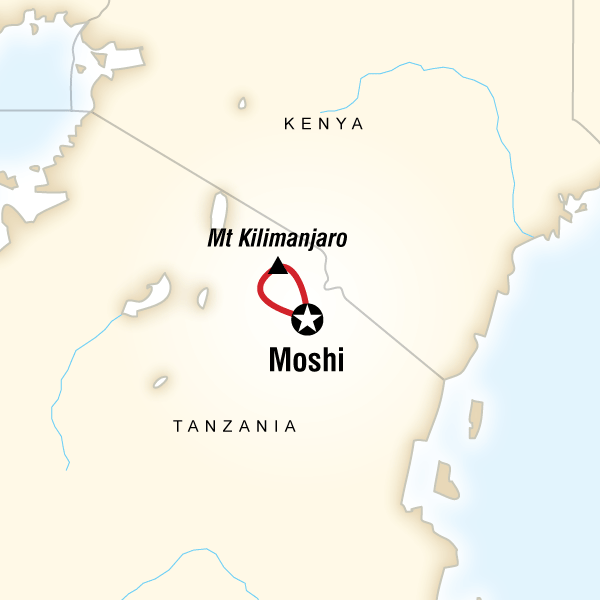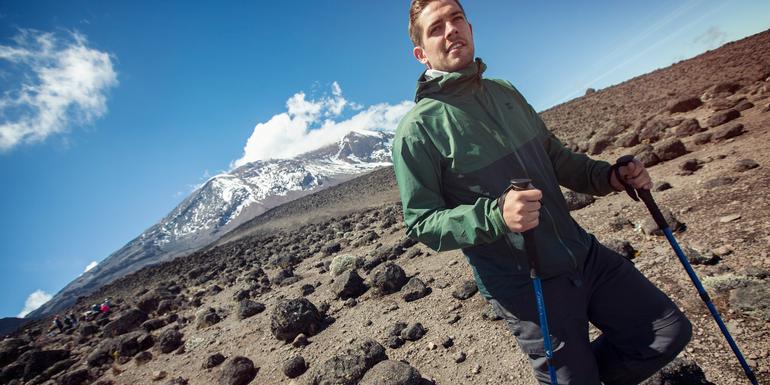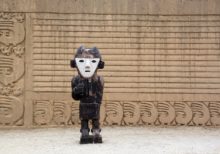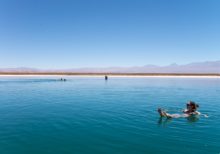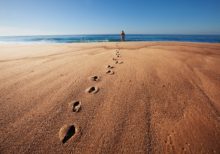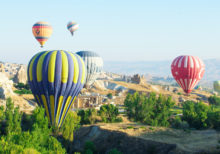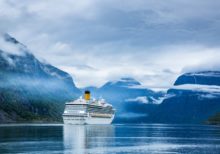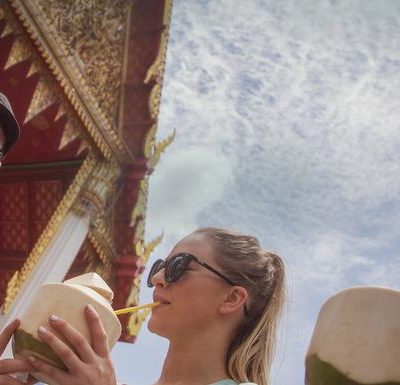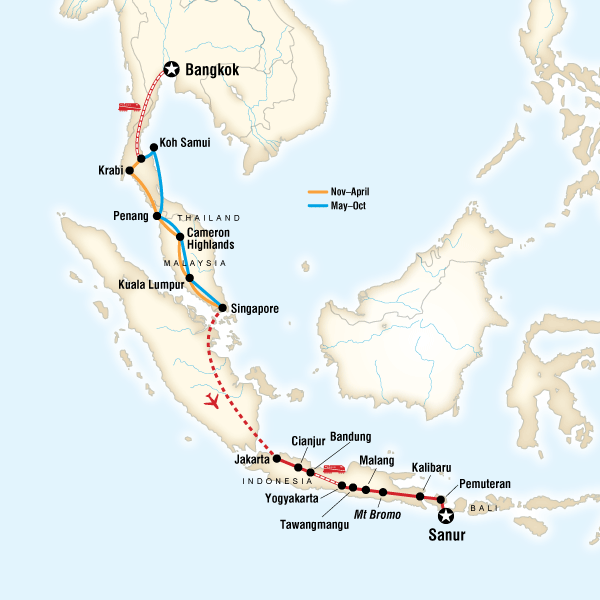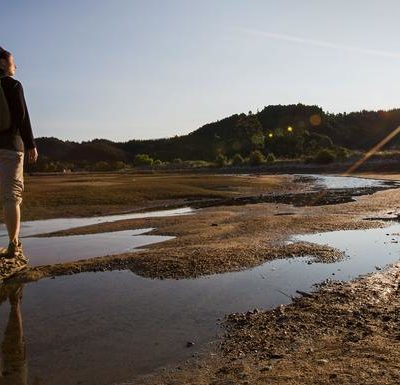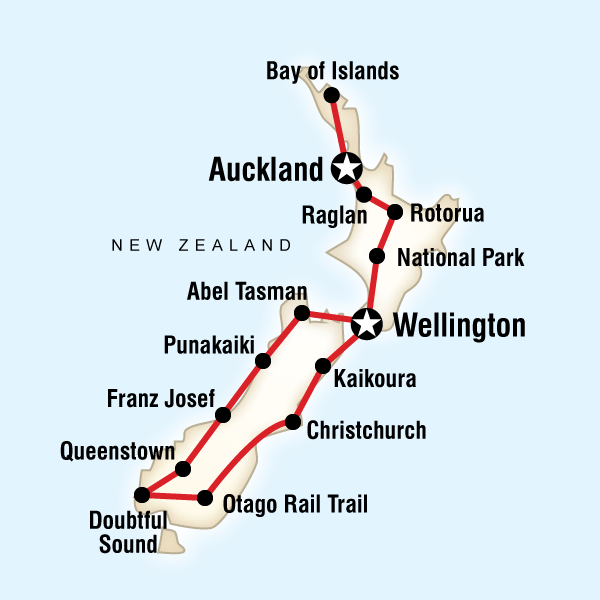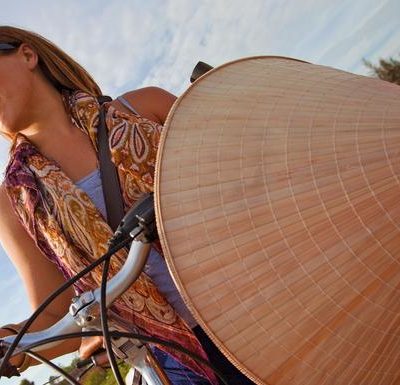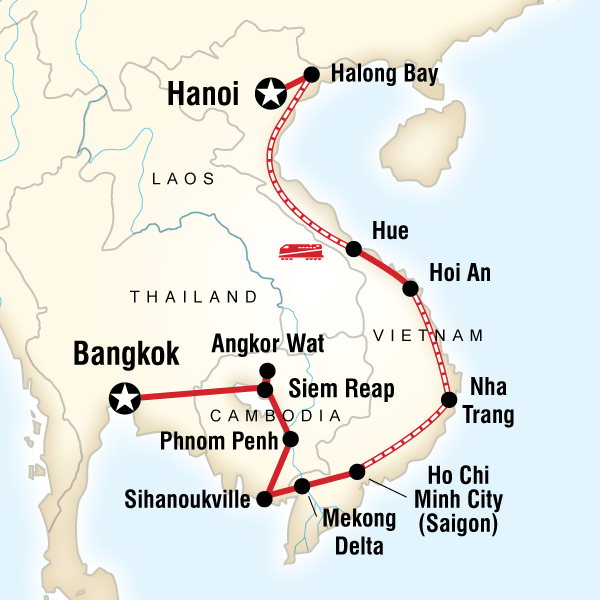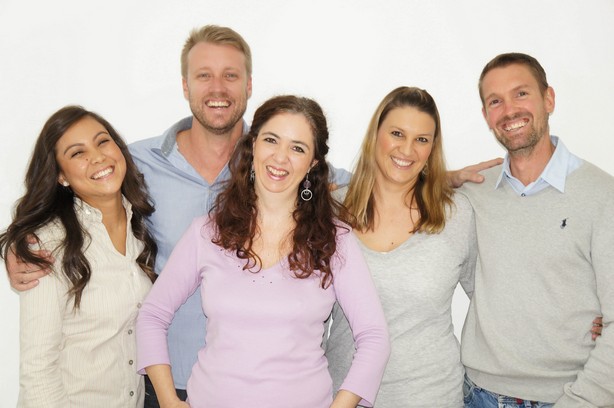More Information
What’s Included
Guided group trek up Mt Kilimanjaro’s Marangu Route with local guides, cooks, porters. All permits and fees. All transport between destinations and to/from included activities.
Highlights
Sleep in mountain huts on the trek, witness Africa from atop its highest mountain, marvel at sunrise on the summit.
Dossier Disclaimer
The information in this trip details document has been compiled with care and is provided in good faith. However it is subject to change, and does not form part of the contract between the client and the operator. The itinerary featured is correct at time of printing. It may differ slightly to the one in the brochure. Occasionally our itineraries change as we make improvements that stem from past travellers, comments and our own research. Sometimes it can be a small change like adding an extra meal along the itinerary. Sometimes the change may result in us altering the tour for the coming year. Ultimately, our goal is to provide you with the most rewarding experience. Please note that our brochure is usually released in November each year. If you have booked from the previous brochure you may find there have been some changes to the itinerary.
VERY IMPORTANT: Please ensure that you print a final copy of your Trip Details to review a couple of days prior to travel, in case there have been changes that affect your plans.
Itinerary Disclaimer
While it is our intention to adhere to the route described below, there is a certain amount of flexibility built into the itinerary and on occasion it may be necessary, or desirable to make alterations. The itinerary is brief, as we never know exactly where our journey will take us. Due to our style of travel and the regions we visit, travel can be unpredictable. The Trip Details document is a general guide to the tour and region and any mention of specific destinations or wildlife is by no means a guarantee that they will be visited or encountered. Aboard expedition trips visits to research stations depend on final permission.
Additionally, any travel times listed are approximations only and subject to vary due to local circumstances.
Important Notes
1. Please be aware that this particular trip, that being the Mt. Kilimanjaro Group Trek – Marangu Route (tour code DTKM), is very popular due to the fact that it is short, the gradient is not as steep and that the accommodation consists of huts as opposed to camping, thus making it less costlier than compared to other routes. It is a quicker ascent with less opportunity & time for acclimatisation. Although the Marangu Route has a reasonably high success rate, the quick ascent can be more demanding on some, it differs from person to person. With this in mind it is suggested that you research various trips offered by G Adventures before making your decision.
2. Single Travellers. We believe single travellers should not have to pay more to travel so our group trips are designed for shared accommodation and do not involve a single supplement. Single travellers joining group trips are paired in twin-share accommodation and tents with someone of the same sex for the duration of the trip. Some of our Independent trips are designed differently and single travellers on these itineraries must pay the single trip price.
3. LUGGAGE COMPLICATIONS FLYING INTO KILIMANJARO: It occasionally happens that luggage on international flights into Kilimanjaro does not arrive. Please be aware that this may happen, especially if you have a tight connection, are flying with different airlines with a connection, have a last minute flight change or re-route, or fly from or connect through another African centre. Please be prepared and keep all important documentation and valuables on your person. As well we recommend a change of clothes in your hand luggage. If unfortunately this does happen, and your luggage does not arrive, you should be entitled to a limited initial compensation from your airline. In Kilimanjaro, the arrival of lost luggage normally takes between 48 and 72 hours after the initial plane’s arrival. The airlines technically should be responsible to forward your luggage to you, to your hotel or elsewhere in Tanzania. You may find that you will be needed to start your trek and you still have not received your luggage. Considering that the customer service standards in Tanzania are different from home, and that we find that the airlines are not always pro-active in helping luggage in its care be reunited with its owner, it is recommended that you purchase or hire locally the needed items, and speak to your G Adventures representative to persist with your airline to retrieve your luggage. Once your luggage is retrieved, it should be able to be forwarded to you – depending where you are. Please note that any costs that you may incur for luggage retrieval or sending luggage are not the responsibility of G Adventures, though we will always strive to assist you in any way possible. You should always keep all receipts and documentation, and contact your airline or insurance provider for reimbursement.
4. Flying through London-Heathrow to East Africa?
Please note that regardless of the rules in other centres, travellers flying from, or connecting in, London-Heathrow are currently only permitted one carry-on piece of luggage and one small personal bag (purse, laptop-size bag, briefcase) on board on flights to Nairobi. If you arrive to the security gate with 2 pieces, you will be forced to check-in one of them, which may result in complications noted above. This policy is in place as of the time of writing, though local rules and regulations may indeed change. It is thus advisable to contact your airline directly for the most up-to-date information.
5. A limited supply of equipment is available to rent directly from your Moshi hotel, however the quality varies. Be sure to thoroughly check the quality of your rented gear and to ensure that it is in correct working order. Whenever possible you should endeavor to bring your own clothing and equipment.
6. The power supply in Tanzania is nominally 240VAC, 50hz. Variable voltage, spikes and sporadic, unexpected, unscheduled power cuts of varying duration can be expected.
7. For extra expenses at your hotel, cash or visa card are the only accepted form of payment. Please note however, there will be extra charges for using your credit card. As a result of this it is preferable to settle all expenses in cash.
8. Please read the Health and Safety section below for an important message on Physical Fitness and Altitude and Acclimatization.
Group Leader Description
For your hike on Mt. Kilimanjaro, you will be lead by an experienced certified mountain guide. To round out the team, you will be joined by an assistant guide (for groups of more than one person), a cook, and a team of porters.
Your guide has been trained in mountain guiding skills, first aid and emergency response, flora and fauna, and group management. All guides are licensed by KINAPA, the National Park Authority. Your cook is an experienced cook who will prepare a variety of nutritious, and hearty meals. As a general rule, each hiker will be accompanied by 2 porters, who assist in carrying both your bag and the team’s gear (tents, food, etc). Please note English is often the 3rd or 4th language of the Tanzanians in the area of Mt. Kilimanjaro, therefore your guide will speak a basic English.
The porter will carry a maximum of 15kg of your belongings and 5kg of personal gear. All our Porters will carry a maximum of 20kg and there is a strict weigh in by the Kilimanjaro Park authority.
Group Size Notes
Max 12, avg 10.
Meals
This includes all meals while trekking on the mountain, along with breakfast back in Moshi on final day after your hike. All meals you have during your trip will be prepared from fresh local produce. Shopping for food will be done before the trip departs. Breakfasts and dinners will be served at camp, while lunches will tend to be packed to have en route while trekking. All evening meals will be hot and will consist of a variety of continental and local dishes. We believe that providing more than enough food while on such a trek is of the utmost importance, and as such you can be ensured that your cook and crew will provide enough quality food for you. Vegetarian meals and other dietary requirements need to be specified prior to arrival.
Please note: bottled water (both before and after the trek) is at your own expense, however, during the Kilimanjaro trek you will be provided with drinking water. This water is collected from fresh mountain streams and then purified with tablets by your guides who will replenish your empty bottles/thermos flasks on a daily basis. For peace of mind, you are welcome to add your own chlorine or iodine tablets instead, if you are uncomfortable drinking the water provided.
Transport
Private minibus, trekking.
About our Transportation
Land Transfers & Included Tours/activities: Many of the land transfers and included tours will be by private van, car or taxi, while others may be shared with other travellers depending on availability, nature of the activity and destination. For transfers, you may have a local non English-speaking driver only, for included tours, you will be accompanied by an English speaking local guide. Please note for your own safety it is mandatory to wear your seat belt at all times when in a vehicle.
Solo Travellers
We believe single travellers should not have to pay more to travel so our group trips are designed for shared accommodation and do not involve a single supplement. Single travellers joining group trips are paired in twin or multi-share accommodation with someone of the same sex for the duration of the trip. Some of our Independent trips are designed differently and single travellers on these itineraries must pay the single trip price.
Accommodation
Simple hotels (2 nts), mountain huts (4 nts).
About Accommodation
Single Travellers. We believe single travellers should not have to pay more to travel so our group trips are designed for shared accommodation and do not involve a single supplement. Single travellers joining group trips are paired in twin-share accommodation and tents with someone of the same sex for the duration of the trip. Some of our Independent trips are designed differently and single travellers on these itineraries must pay the single trip price.
On the trek you will stay in non-heated, wooden A-frame huts with simple, single beds that have thin mattresses. There is no electricity so headlamps are essential. Be prepared to possibly share a hut with members of the opposite sex. Your third sleep, before your summit hike, will be at the most basic of the shelters. This structure has many bunk beds, shared with several other hikers. With the altitude, the shelters do get very cold. For added comfort and insulation, you may consider bringing your own sleeping mat to lay on top of the provided mattresses. All huts have shared toilet and bathing facilities.
Drinking water: On day 2, you should bring bottled water from the hotel for your first day’s hike. Beyond that, purified (filtered) mountain water will be provided for you for the duration of the hike.
Please note, if you need to alter the itinerary for any reason (e.g. travel delay or illness or in the event of having to descend from your climb early due to altitude sickness, injury or exhaustion), any unscheduled meals or nights spent in a location other than the tour itinerary will be at your own expense.
Your start/end hotel has a number of services and facilities available as follows; Internet, laundry, gear hire, luggage storage, telephone services, TV lounge, swimming pool, outdoor dining area and a shuttle service to/from Moshi as the hotel is located just a few kilometres from the centre of town.
Joining Hotel
For 2015 and 2016, we will be using the following hotel as the start location (with a few exceptions, listed below):
Stella Maris Lodge
Moshi
Tanzania
+255 686 663 244
The following hotel will be used for the below listed departures:
October 18th, 2015
January 24, 2016
March 6, 2016
May 29, 2016
August 21, 2016
October 2, 2016
October 16, 2016
December 18, 2016
Bristol Cottages Kilimanjaro Ltd
PO Box 7304
Moshi, Tanzania
Tel: +255 (0)27 275 5083
The following hotel will be used for the February 15th, 2015 departure:
Sal Salinero Hotel
P.O. Box 7611
Moshi
Tanzania
+255 27 27 52240
Joining Instructions
On arrival no transfers are included. Please make your way to the joining hotel. Kilimanjaro International airport is approximately 40km, or 40 minutes, from Moshi. Taxis are available to transfer you to Moshi, and cost approximately USD 50 per car. If you arriving in Moshi from Nairobi, Kenya, there is a public shuttle bus that leaves Nairobi at 8:00am daily to Moshi. It is a direct bus via Arusha, and with border formalities, and a break (and potentially a change of vehicles) in Arusha, the trip is approximately 8 hours. There are a number of local companies that offer this service, and this can be organized locally the morning of. In addition, for your convenience, you may pre-reserve a seat on our partner shuttle service through G Adventures.
For pre-booked transfers from Kilimanjaro International Airport to our Moshi hotel, G Adventures representative present will assist you or your driver will be waiting with a G Adventures sign. At times there are taxi drivers who will try to solicit your business, so please be aware of them and proceed directly to the G Adventures representative. For any issues relating to pre booked transfers for Kilimanjaro International Airport including delays or missed transfers, please contact our airport transfer operator
Musaddiq: +255 754 400 141 or +255 787 400 142 (From outside Tanzania)
Musaddiq: 0754 400 141 or 0787 400 142 (From within Tanzania)
Please note that day 1 is an arrival day and no activities have been planned, though a brief departure meeting will be held in the garden of the hotel in evening of day 1. Here you will meet our local G Adventures representative, and possibly some of your guiding team. At this point you will receive information about general and specific aspects of the “Kili” trek. Upon arrival to the hotel, our G Adventures representative be there to assist you with anything you need. If you arrive late and miss the meeting, s/he will leave you a message detailing what time and where you should meet the next morning.
This tour departs Moshi for Mt. Kilimanjaro in the morning of day 2.
Arrival Complications
We don’t expect any problems, and nor should you, but if for any reason you are unable to commence your trip as scheduled, as soon as possible please contact your starting point hotel, requesting that you speak to or leave a message for your CEO (if you are not on a group tour please refer to the emergency contact details provided in this dossier). If you are unable to get in touch with your leader, please refer to our emergency contact details. If you have pre-booked an airport transfer and have not made contact with our representative within 30 minutes of clearing customs and immigration, we recommend that you make your own way to the Starting Point hotel, following the Joining Instructions. Please apply to your travel agent on your return for a refund of the transfer cost if this occurs.
Emergency Contact
Should you need to contact G Adventures during a situation of dire need, it is best to first call our local office. If for any reason you do not receive an immediate answer, please leave a detailed message and contact information, so they may return your call and assist you as soon as possible.
EMERGENCY CONTACT NUMBERS
G Adventures Emergency Mobile Phone for our Local Office in Nairobi, Kenya: +254 727 208 832.
Locally, from Kenya, dial 0727 208 832.
Beyond that, you may try our Operations department in Canada:
Toll-free, North America only: 1 800 465 5600.
Calls from UK: 0844 272 0000
Calls from Australia: 1 300 796 618
Outside North America, Australia and the UK: +1 416 260 0999
For any issues relating to pre-booked transfers for Kilimanjaro International Airport, including delays or missed transfers, please contact our airport transfer operator:
Musaddiq: +255 754 400 141 or +255 787 400 142 (From outside Tanzania)
Musaddiq: 0754 400 141 or 0787 400 142 (From within Tanzania)
What to Take
As you will be trekking up Africa’s highest mountain, you will be passing through a number of different climate zones, and should pack to prepare for a number of extremes – hot and sunny, cool, cloudy, and misty, fog, rain (your first day you will ascending through a section of rain forest), wind, and lastly snow and cold. You may experience one or all of these conditions in the same day on your trek. In the lowlands, temperatures in the shade can reach 35?C, and in the highlands it will be below freezing, with possible rain and fog. The use of lightweight, breathable, easily removable layers of clothes works best to allow you to adapt to the local conditions. We recommend breathable, moisture-wicking fabrics made of wool or synthetic fibers. Cotton is not recommended for hiking as it does not allow for heat or moisture to enter or escape, and it will not dry once wet. Please note that is gets extremely cold near the top of Mt. Kilimanjaro, and you will begin hiking your final ascent to the summit at approximately midnight, and hike through the coldest part of the day. For this, in addition to several warm layers and good boots to grip as you climb over frozen scree, ice, and snow, you will need warm protection for your extremities – warm socks, gloves, and a warm winter hat. Lastly, Mt. Kilimanjaro is located only a few hundred kilometres from the equator, and at altitude, the sun’s affects are heightened. Use a hat, sunglasses, sun screen, and wear proper clothing to protect yourself from the sun, to reduce the risk of sunstroke. With regard to the type of pack to use, most backpacks are carried by porters inside large canvas duffle bags so there is no need for any specialized gear unless you want to carry these yourself. Usually the only pack you will carry will be a small day pack with your water, snacks and wet weather gear.
Cameras whether Video or film, need to be protected against the severe cold weather either in warm pouch or the interior pockets of your clothing. A selection of lenses will aid the final results although weight and bulk will obviously influence your selection. A polarized or neutral density filter is recommended, as is slide film rather than print. Bring your own film as it can be hard to find and expensive in Tanzania.
For digital equipment and mp3 players, check with the manufacturer’s specifications for temperature range (especially battery life), water tightness, altitude range, and general hardiness.
Your baggage should be clearly labelled and restricted to one large waterproof duffel bag or backpack, maximum 15kg, plus a daypack. Please note, secure luggage and valuables storage facilities are available at your hotel in Moshi for any extra mountain gear/clothing that you do not require for your climb.
Checklist
Suggested Items (the following items serve as guidelines for the trekker but what to bring is ultimately up to the individual. We suggest you carefully sift through this list, before embarking on the big pack):
– Warm fleece or wool jumper/jacket
– Waterproof jacket and pants
– 3 shirts/t-shirts, cool and breathable
– 2 Long-sleeved shirts or sweaters
– 1 pair of shorts, mid-thigh or longer
– 2 pairs of long hiking trousers, lightweight, breathable
– 1 pair of long trousers
– Thermal underwear – top and bottoms
– Waterproof, light weight hiking boots. They will get wet and dirty.
– Tennis shoes or sandals for relaxing in the evening
– Comfortable, breathable socks (wool or synthetic fibers recommended)
– Winter hat/warm hat, balaclava (wool or synthetic fibers recommended)
– Warm gloves/mittens
– Day pack with good hip and sternum support, for you to carry
– Very warm sleeping bag (it will be below freezing at least on one night)
– Small travel pillow
– Refillable water bottle/flask (no plastic)
– Small hot water thermos (as cold water has been known to freeze near the summit)
– Water purification methods(chlorine or iodine tablets) or purifier
– Sun hat, bandana (many uses – head protection, handkerchief, wrap injuries)
– Sunglasses (to help prevent snow blindness if hiking in snow)
– Sunscreen (very important, especially if summiting in snow)
– Headlamp / torch / flashlight (with extra batteries and bulbs)
– Camera and extra memory card
– Extra batteries (recommended)
– Pocket knife / utility knife
– Electricity plug adapter (for the hotel)
– Energy bars and snacks (chocolate, nuts, high energy snacks)
– Toiletries (soap, toothpaste, toothbrush, razors, etc)
– Hand sanitizer gel/sanitizer wipes
– Toilet paper
– Personal first aid kit (should contain lip balm with sunscreen, Ibuprofen, malaria pills, band aids/plasters, adhesive tape, anti-histamine, antiseptic cream, Imodium or similar tablets for mild cases of diarrhea, rehydration powder (salt and sugar mix), throat lozenges, insect repellent, extra prescription drugs you may be taking)
Documents:
– Passport (with photocopies)
– Travel insurance (with photocopies)
– Yellow fever certificate
– Airline tickets (with photocopies)
– USD cash
– Credit or debit card (see personal spending money)
– G Adventures vouchers, pre-departure information and dossier
– Any entry visas or vaccination certificates required or vaccination certificates required
Optional Items: Hiking poles, hiking gaiters (protective covers) for your hiking boots, reading/writing material, binoculars, cover for backpacks, playing cards, games, frisbee, notebook, pens/pencils, candles, matches
A limited supply of equipment is available to rent directly from your Moshi hotel, however the quality varies. Please let your CEO know at the welcome meeting. Whenever possible you should endeavour to bring your own clothing and equipment. The list below is a guideline only and prices are subject to change.
Price list for equipment hire:
– Rucksack/day pack $12
– Balaclava $6
– Sleeping bag (-25 to -35°C) $40
– Poncho $18
– Plastic bag-$4
– Duffel bag $6
– 2 walking poles (ski sticks) $12
– Gaiters $8
– Gloves $6
– Sweater $5
– Sunglasses $8
– Long underwear $5
– Raincoat $12
– Rain pants $12
– Fleece pants $6
– Mountain boots $9
– Warm jacket $12
– Hats $6
– Scarfs $6
Laundry
Laundry service is provided at the start/end hotel and clients can leave their dirty belongs at the hotel for washing. When the clothes will be ready will depend on the weather because the clothes are dried by the sun.
Visas
All countries require travellers to have a valid passport (with a minimum 6 months validity). Please note that upon arrival by air to Arusha, Tanzania, most nationals can obtain a visa for US$50 in $US cash (valid for those who would be permitted a Tanzania visa while still in their own country), though the visa currently costs $100 for U.S. nationals. This visa is valid for up to 3 months with multiple entries/exits permitted to Kenya and Uganda only. If you are transiting through Uganda or Kenya, you will have to purchase a transit visa en route. These are usually $US20 or US$10 respectively, and valid for 24 hours. Alternatively, for either of these two countries, you may purchase a normal visa for US$30 and US$25 respectively (most nationals), both of which are valid for up to 3 months. As fees and policies can change, we highly recommend that you contact your local embassy or consulate for the most up-to-date visa requirements, or see your travel agent. It is your responsibility to have the correct travel documentation.
Detailed Trip Notes
American Dollars that are series 1999 or earlier are not accepted and very difficult to change in Southern and Eastern Africa, because of past forgeries. As a result please bring notes from year 2000 or more recent.
REGIONAL INFORMATION
Kilimanjaro Weather and Climate
Lying just south of the equator, Kilimanjaro is affected by the passage of the Intertropical Convergence Zone, which brings with it the main rainy periods. The highest rainfall occurs between mid March and early May, and slightly less between the beginning of November and late December. Rain and, higher up, snow, can however be encountered at any time of year – even in the driest periods (January, February and September). Normally the drier seasons are associated with clear, dry weather which can last for weeks on end. The best weather is generally encountered in the mornings, and convectional rainfall, if any, tends to come in mid-afternoon. Temperatures vary considerably with height and time of day. On the plains surrounding Kilimanjaro the average temperature is about 30°C. At 3000m. frosts can be encountered at night while day time temperatures range from 5 to 15°C. Night time temperatures on the summit can be well below freezing.
Electricity
The electric current in Tanzania operates on 230V, 50Hz.
Language
The official languages are Swahili and English. There are also numerous dialects spoken throughout.
TANZANIA – Offical Statistics
Full country name: United Republic of Tanzania (Jamhuri ya Muungano wa Tanzania)
Area: 945,087 km2
Population: 38,329,000-July 2005 est (34,443,603-2002 census)
Capital city: Dodoma
People: 99% native African (over 100 tribes), 1% Asian, European and Arabic
Languages Swahili, English, indigenous.
Religion: 40% Christian, 33% Muslim, 20% indigenous beliefs
Government: Republic (multi-party state)
President: Benjamin William Mkapa
Major industries: Tobacco, sugar, sisal, diamond and gold mining, oil refining, cement, tourism
Major trading partners: India, Germany, Japan, Malaysia, Rwanda, the Netherlands, South Africa, Kenya, U.K., Saudi Arabia, China Currency: Tanzanian shilling
INTERESTING FACTS
• The name is name made up from an amalgamation of TANganyika and ZANzibar.
• Tanzania is the largest country in East Africa (although not in Africa as a whole, the Sudan is 3 times larger); it’s landmass covering an area of just over 945,087 sq. km (including Zanzibar).
• This makes Tanzania about the size of France, Germany and Switzerland combined; 3 times the size of the entire British Isles or one-tenth the size of the whole of the USA.
• Tanzania’s population at the last official census was 31.3 million, with approximately one third being classified as “urban”.
• Agriculture forms roughly half of GDP and agriproducts (e.g.: coffee, tea, tobacco, cashew nut, sisal, cotton) some 75% of export earnings. Dodoma, in central Tanzania, is the political capital of the country although Dar es Salaam is the effective trading and business capital, with its safe harbour (“Dar es Salaam” means “Haven of Peace”), international airport and population of some 1.75million.
MT. KILIMANJARO
Mt. Kilimanjaro, also known as Kili, is located just south of the equator, and is Africa’s highest mountain. It is made up of three volcanoes: Shira, Mawenzi, and Kibo, the tallest. For the moderately fit person, the trek up Mt. Kilimanjaro is a attainable, and not very technical climb.
Spending Money
Every traveller is different and therefore spending money requirements will vary. Some travellers may drink more than others while other travellers like to purchase more souvenirs than most. Please consider your own spending habits when it comes to allowing for drinks, shopping and tipping. Please also remember the following specific recommendations when planning your trip.
Money Exchange
The local currency in Tanzania is the Tanzanian Shilling (TSH).
Shillings can be obtained locally by changing foreign currency or by using ATMs (where available) which will disperse local currency. Your CEO will inform you where you can change money throughout the tour and approximately how much money you will need for each country.
The easiest foreign currency to exchange for locally for any of the local currencies is the $US; however the British Pound and Euro may also be exchanged as well. Please note that due to past problems with forgery, $US notes that are older than year 2006 are not accepted in Africa.
Large note ($US 50, $US 100 etc) can be difficult to change in some places, but will gain you the best exchange rate.
If you plan to rely on cash, please bring foreign currency (Euro, Pound, USD) with you, as it is often expensive to buy these currencies locally. And in more rural areas, it is often not likely.
If you plan to buy your visas at borders, you will need to bring $USD cash to pay for these visas. Please note you cannot use the local currency or any other currency to buy these visas- they must be purchased in USD.
Please do not bring Travellers’ cheques toAfrica. They are difficult if not impossible to exchange in many places.
Visa/Plus system cards are the most widely accepted debit cards. it is harder to find machines Mastercard/Cirrus cards. We highly recommend that if you hold a Mastercard, you obtain a Visa card prior to departure and travel with both. This is also useful should somethingunforeseen happen to one of your cards during your travels.
While there are many ATMs in the major centres, there are no guarantees that your credit or debit cards will actually work in Africa. Check with your bank.
Credit cards can be used in major cities and towns ONLY but please do not rely on them as a method of payment because they are generally not widely accepted. You should be aware that to purchase products or services on a credit card a fee of 5%-10% usually applies. The majority of our optional activities can also be paid by credit card. Your CEO will advise on these.
Please note that in many areas there may be occasional power-outages, where there will be no electricity for hours at a time. In addition, ATMs outside of larger centers often run out of cash or can be out of order unexpectedly. These factors could affect your ability to access money from ATMs. As such, please do not rely on credit or debit cards as your only source of money.
A combination of foreign currency and debit/credit cards for cash advances is best. Always take more rather than less, as you don’t want to spoil the trip by constantly feeling short of funds.
As currency exchange rates can fluctuate often we ask that you refer to the following website for daily exchange rates: www.xe.com.
Emergency Fund
Departure Tax
USD40, may be included in the international air ticket
Tipping
Tipping is an expected and highly appreciated component of your Mt. Kilimanjaro trek. It should be an expression of satisfaction with those who have assisted you throughout the expedition. Tipping is one of the most direct ways that you can have a positive economic impact within the East African community. Although it may not be customary for you, it is of considerable significance to your guides, assistants, cooks, and porters, as an important source of and supplement to their income.
During the welcome meeting the CEO can confirm to the travellers the total number of guides and cook but not porters, the total number of porters will only be confirmed once all the luggage and equipment are checked by Kilimanjaro national park rangers at the gate. Normally 2-3 porters per hiker.
You are not introduced to the porters at the gate because there is no enough time and when you arrive at the first hut or camp on Day 1 the staff are busy and travellers are tired. On Day 2 of the hike travellers will have enough time to meet everyone when they arrive at the hut or camp.
Upon completion of your climb it is ideal to have a tipping ceremony with the crew at the last meal on the mountain. Tips should be placed in a group envelope and a member of the climbing team can hand the envelope directly to the Lead Guide because there are many people to share the tips with. It is encourage to announce the amount in front of the group to ensure each crew member knows the total amount.
A method that’s popular is for everybody to contribute 10% of the total cost of their trek towards tips. So if you paid US$2000 for your trek, you should pay US$200 collectively for your crew. (If there were only one or two of you, it would be better to pay slightly more than 10%.). A realistic amount for a trip of 5-7 days length would be between 150-200 USD per climber for tips.
If paying each crew member individually, you can use the following chart as a guideline:
Tipping guide in USD (or equivalent in local currency) per group per day spent on the mountain:
Per Chief Guide: US$10-15 per day
Per Assistant Guide: US$8-10 per day
Per Cook: US$7-$10 per day
Per Porter: US$5-8 per day
Gifts in addition are also appreciated – e.g. warm clothing or footwear.
These are mere guidelines, and you may wish to alter them if you feel, for example, a certain porter is deserving of more than his normal share, or if your trek was particularly difficult.
Optional Activities
MOSHI
Planeterra supported – Tanzania Women’s Cooperative
1hr massage $30USD
30 min massage $20USD
*Passengers can support this project by enjoying an after Kilimanjaro massage at Lala Salama (Good Night) Spa. Donations are accepted as well.
**For more information on project please see Associated Planeterra Project
Health
Please note inoculations may be required for the country visited. It is your responsibility to consult with your travel doctor for up to date medical travel information well before departure.
We recommend you contact your family physician, or your local travel clinic for the most up-to-date health information at least one month before departure.
Please ensure you have all the inoculations recommended by your doctor for travel in East Africa. Be aware that Tanzania has regions where malaria is present, including the ones visited. We thus recommend that you take malaria medication; your doctor should be able to recommend the necessary prophylactics. Travellers should also carry a basic travel first-aid kit as medical facilities are basic throughout these countries. An important item to include is a liquid or gel hand sanitizer and/or alcoholic/sanitary wipes, as they will aid in personal cleanliness and hygiene throughout the trip. The local tap water should not be consumed, so any water treatment tablets (ex. iodine), drops, etc, would help. If you have any pre-existing medical condition, you must inform G Adventures prior to the purchase of the tour, and upon arrival, to the CEO so he/she can be prepared to help you.
Sand flies and Mosquitos:
Are found in the areas visited. Mosquitos are more prevalent in areas that receive more rainfall, and sand flies, though generally found on the coast, can also be found in dry & dusty conditions inland. Both tend to come out in the early evening and early mornings. Protective clothing, and insect repellent are highly recommended during these times.
Malaria:
This infectious disease is transmitted by mosquitos carrying the parasite. These mosquitos are found at altitudes of under 1,800m, and thus can be found in Moshi and the base of the mountain. You must have prophylactics which you can obtain from your local doctor at or health clinic.
Sun:
It is very important that you wear sun block, even on a cloudy day, or at high altitudes when it feels cool, as we are near the equator and the sun is very strong. A sunburn can turn a pleasant trip into a painful trip.
Hydration:
Even when days are cool please be sure to drink a minimum of two litres of water and refrain from drinking to many diuretics, as while when travelling outdoors the breeze can dehydrate you quickly as well as the heat.
Diarrhoea:
It is normal for people travelling overseas to get an upset stomach due to a change of climate and food. Please make sure that you wash your hands and stay away from street food.
Physical Fitness:
Although Kilimanjaro is not a technical mountain climb, it is a major challenge and the rigors of altitude should not be underestimated. Remember that Uhuru peak is 500m higher than Everest Base Camp!! The pace of your ascent coupled with good acclimatization will help you on the climb but it is essential to be mentally and physically prepared before you start. Regular hikes are one of the best ways to prepare, increasing frequency and length, as you get closer to the trek. All aerobic exercises such as cycling, running, swimming and funnily enough aerobics are good for strengthening the cardiovascular system. Generally, any exercise that increases the heart rate for 20 minutes is helpful but don’t over do it just before the climb.
Altitude and Acclimitization:
Altitudes are generally defined as follows:-
· High altitude 2,400m – 4,200m
· Very high altitude 4,200m – 5,400m
· Extreme altitude above 5,400m (Uhuru peak is 5,895m)
During the trek it is likely that all climbers will experience at least some form of mild altitude sickness. It is caused by the failure of the body to adapt quickly enough to the reduced level of oxygen in the air at an increased altitude. There are many different symptoms but the most common are headaches, light-headedness, nausea, loss of appetite, tingling in the extremities (toes, fingers) and a mild swell of ankles and fingers.
If you have severe symptoms, go down 1,500 to 2,000 feet right away to see if your symptoms get better. Keep going down until your symptoms go away completely. Medicines that may be used to prevent or treat the symptoms of severe high-altitude illness include acetazolamide and nifedipine. Don’t ignore signs of altitude sickness. People can die of this if they don’t recognize the signs or if they don’t believe their illness is caused by the high altitude. When you have signs of altitude sickness, don’t go higher until you feel better and your symptoms have gone away completely.
Hypothermia:
Hypothermia is a condition where the body becomes dangerously cold. It can be caused by brief exposure to extreme cold, or by prolonged exposure to mild cold. Hypothermia occurs when a person’s deep-core body temperature drops below 35 degrees celsius (95 degrees farenheit). It is the lowered temperature of the organs inside the body that is important – an ordinary thermometer cannot measure this. The person may not actually feel cold but if they stay in a cold environment and do little or nothing to keep warm, then they may run the risk of becoming hypothermic or becoming ill with bronchitis or pneumonia. Both are cold-related illnesses.
Danger signs to watch out for: Drowsiness, very cold skin on parts of the body normally covered, for example, stomach or armpits, Slurred speech, Absence of complaint about feeling cold, even in a bitterly cold environment.
Eye Issues:
All contact lens wearers should take care to remove the lenses at night, as the eye needs to absorb oxygen from the atmosphere. The rarefied conditions of altitude reduce oxygen levels and in extreme cases a Corneal Oedema can develop.
Emergency Evacuation:
In the event of an emergency on the mountain the rescue team plus one of the assistant guides will descend with the casualty to the park gate. At the gate the casualty will be taken care and the necessary arrangements will be done.
Safety and Security
Many national governments provide a regularly updated advice service on safety issues involved with international travel. We recommend that you check your government’s advice for their latest travel information before departure. We strongly recommend the use of a neck wallet or money belt while travelling, for the safe keeping of your passport, air tickets, travellers’ cheques, cash and other valuable items. Leave your valuable jewellery at home – you won’t need it while travelling. Many of the hotels we use have safety deposit boxes, which is the most secure way of storing your valuables. A lock is recommended for securing your luggage. When travelling on a group trip, please note that your CEO has the authority to amend or cancel any part of the trip itinerary if it is deemed necessary due to safety concerns. Your CEO will accompany you on all included activities. During your trip you will have some free time to pursue your own interests, relax and take it easy or explore at your leisure. While your CEO will assist you with options available in a given location please note that any optional activities you undertake are not part of your itinerary, and we offer no representations about the safety of the activity or the standard of the operators running them. Please use your own good judgment when selecting an activity in your free time. Although the cities visited on tour are generally safe during the day, there can be risks to wandering throughout any major city at night. It is our recommendation to stay in small groups and to take taxis to and from restaurants, or during night time excursions.
Protests and Demonstrations- Protests and demonstrations, even those that are well intended, have the potential to turn violent with no warning. Counter protests can also turn violent. Action by security forces to disperse demonstrators and protesters may occur at any time. If you are in an area where demonstrators or protesters are gathering, avoid the temptation of staying for a good photo opportunity and leave the area immediately.
Water based activities have an element of danger and excitement built into them. We recommend only participating in water based activities when accompanied by a guide(s). We make every reasonable effort to ensure the fun and adventurous element of any water based activities (in countries with varying degrees of operating standards) have a balanced approach to safety. It is our policy not to allow our CEOs to make arrangements on your behalf for water based activities that are not accompanied by guide(s).
Swimming, including snorkeling, is always at your own risk.
We take all prudent measures in relation to your safety. For ways to further enhance your personal safety while traveling, please visit:
www.gadventures.com/travel-resources/safety/
Trip Specific Safety
We recommend that you wear minimal jewelry, and that you keep valuable items safely stored.
Medical Form
Our small group adventures bring together people of all ages. It is very important you are aware that, as a minimum, an average level of fitness and mobility’ is required to undertake our easiest programs. Travellers must be able to walk without the aid of another person, climb 3-4 flights of stairs, step on and off small boats, and carry their own luggage at a minimum. Travellers with a pre-existing medical condition are required to complete a short medical questionnaire, which must be signed by their physician. This is to ensure that travellers have the necessary fitness and mobility to comfortably complete their chosen trip. While our CEOs work hard to ensure that all our travellers are catered for equally, it is not their responsibility to help individuals who cannot complete the day’s activities unaided. Please refer to the physical ratings in this Trip Details document for more information.
The medical questionnaire can be found online at:
www.gadventures.com/medical-form.
A Couple of Rules
Illegal drugs will not be tolerated on any trips. Possessing or using drugs not only contravenes the laws of the land but also puts the rest of the group at risk. Smoking marijuana and opium is a part of local culture in some parts of the world but is not acceptable for our travellers. Our philosophy of travel is one of respect towards everyone we encounter, and in particular the local people who make the world the special place it is. The exploitation of prostitutes is completely contrary to this philosophy. Our CEOs have the right to expel any member of the group if drugs are found in their possession or if they use prostitutes.
Travel Insurance
Travel Insurance: Travel insurance is compulsory in order to participate on any of our trips. When travelling on a group trip, you will not be permitted to join the group until evidence of travel insurance has been sighted by your CEO, who will take note of your insurance details. When selecting a travel insurance policy please bear in mind that all clients must have medical coverage and that we require a minimum coverage of USD 200,000 for repatriation and emergency rescue. We strongly recommend that the policy also covers personal liability, cancellation, curtailment and loss of luggage and personal effects. If you have credit card insurance we require proof of purchase of the trip (a receipt of credit card statement) with a credit card in your name. Contact your bank for details of their participating insurer, the level of coverage and emergency contact telephone number.
Planeterra-The G Adventures Foundation
Through our commitment to responsible tourism we have developed the Planeterra Foundation, a non-profit organization dedicated to making a positive difference in the lives of people and communities around the world through support of international charities, local organizations and community projects in the places that we visit on our tours. G Adventures matches all individual donations and pays all administration costs, which means that 100% of each donation is doubled and goes directly to support our projects. For more information about Planeterra and the projects we support, or to make a donation, please visit www.planeterra.org
Planeterra Dollar-A-Day Program
Our Dollar-A-Day Program provides travellers with the opportunity to help us give back to the people and places visited on our tours by donating one dollar per day for the duration of their tour. 100% of these proceeds will go directly to support our G Adventures for Good projects.
To participate in this program please indicate at the time of booking that you would like to participate in G Adventures’ Dollar-A-Day program, either by clicking the check box online, or by advising your G Adventures specialist or travel agent. (Note: Donation will be charged in the currency of your booking)
Associated Planeterra Project
Planeterra Foundation, G Adventures’ non-profit, is investing in adult women education in Tanzania. About 5% of girls in Tanzania finish secondary school, leaving a large gender gap between people that are skilled to enter full time employment. Education for adults is expensive and as most males in the family control the finances of the household, most adult women do not have a chance to invest in their own education. Planeterra is working with our grassroots partner; Give a Heart to Africa, who provides free adult business classes to women in Moshi. Working with our partner, we are fundraising to open a cooperative space for graduates to practice skills in the hospitality industry while increasing their use of English. Passengers can support this project by enjoying an after Kilimanjaro massage at Lala Salama (Good Night) Spa where graduates from the Give a Heart to Africa currently are employed. Each massage includes a direct donation to a permanent cooperative that G Adventures and Planeterra are fundraising for to provide further employment and skills training for the students of the Give a Heart to Africa School.
Planeterra supports the Youth Challenge International (YCI), it is a non-profit, charitable organization that combines community development, health promotion and conservation in projects conducted by international teams of volunteers. By involving youth in the solutions to the issues they face, YCI aspires to a world where young men and women aged 10 to 25 have access to education, healthcare and meaningful employment. Youth in Africa, South America and Asia face huge challenges and YCI is working right now to provide them with education on HIV/AIDS and basic employment skills training.
For more information about this project and/or to make a donation please visit our website: www.planeterra.org or contact us at info@planeterra.org
Feedback
Newsletter
Travel Forum – The Watering Hole
Be sure to stop by The Watering Hole, our adventure travel forum. If you’re interested in meeting others booked on your upcoming trip, check out the Departure Lounge section of our forum and introduce yourself. Otherwise, just drop in at anytime to share some travel tips, ask questions, meet other travellers and quench your thirst for travel. Our forum is located at wateringhole.gadventures.com.
Max Pax
12
Group Leader
Certified mountain guide throughout, local representative, cook, porters.
Day 6 Optional Activities
Day 6 Optional Activities
